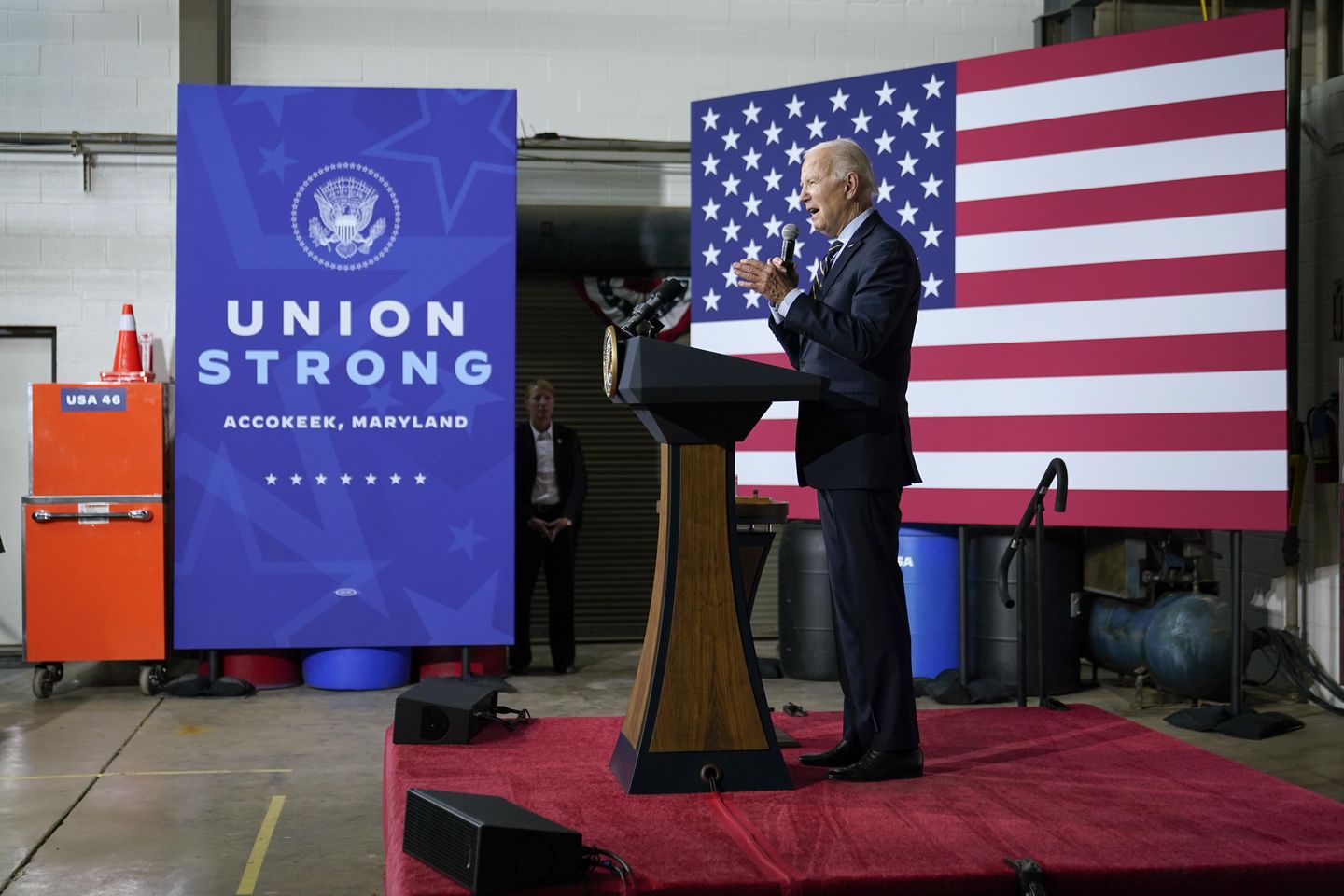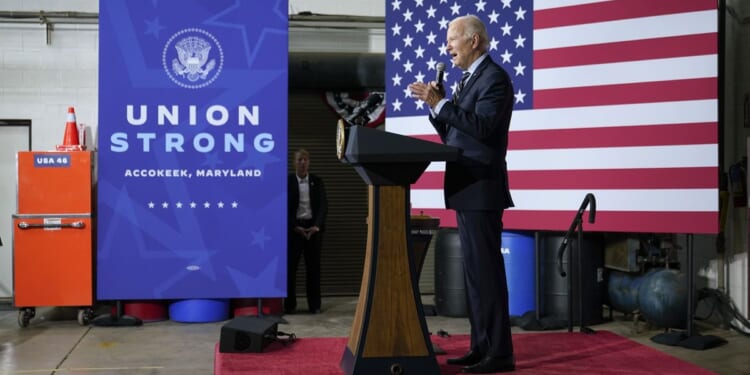
President Biden vetoed a bill that would repeal a National Labor Relations Board rule reclassifying franchise workers as employees of their parent companies, such as McDonald’s, Marriott International and Taco Bill.
If Congress doesn’t overcome the veto, parent companies would have to bargain with employees of local franchises that decide to unionize.
Mr. Biden said Friday the rule is necessary because it gives workers more power to negotiate for better wages and safer working conditions.
“Without the NLRB’s rule, companies could more easily avoid liability simply by manipulating their corporate structure like hiding behind subcontractors or staffing agencies,” he said in a message to Congress.
Business groups slammed the decision, saying his veto hurts small businesses. The International Franchise Association said the rule could cost small businesses $33.3 billion annually, cut 376,000 jobs and increase lawsuits by 93%.
“The administration has solidified its position that it cares more about special interests than small business owners and their employees, who face a near-daily onslaught of costs and uncertainties from the Biden administration’s regulatory assault,” said Matthew Hiller, IFA CEO.
The Coalition to Save Local Businesses called the veto “tone deaf.”
“President Biden has shown the American people where he stands on small businesses: He couldn’t care less about them,” said Mike Layman, a senior adviser to the group.
Mr. Biden said he makes no apologies for protecting workers’ rights to organize and bargain collectively.
“Republicans are siding with union-busing corporations over the needs of workers and their unions,” he said.
The measure that would repeal the rule cleared the Democratic-controlled Senate last month in a 50-48 vote. Sen. Joe Manchin, West Virginia Democrat, and independent Sens. Angus King of Maine and Kyrsten Sinema of Arizona joined with Republicans in favor of the proposal.
House Republicans approved the resolution in January, sparking the veto threat from Mr. Biden. The resolution was introduced under the Congressional Review Act, which lets Congress repeal agency rules through a majority vote in both houses.
A two-thirds majority in Congress is now required to overcome Mr. Biden’s veto.
The NLRB rule was set to take effect in February but was delayed and, later, blocked by the U.S. District Court in Texas after a lawsuit opposing it was filed by the U.S. Chamber of Commerce and other business groups.
Under the rule, parent corporations and franchise owners would be joint employers of contract and franchise workers when they have control of working conditions such as pay, scheduling, supervision and discipline, even if that control is indirect or not exercised. The two entities would also share negotiating with unions and joint liability for labor violations.
Parent companies, known as franchisers, say joint responsibility would be unfair because they don’t have direct control over workers at their franchises. Employment issues such as pay hours, benefits and scheduling are all managed at the local level by the franchise owner.












